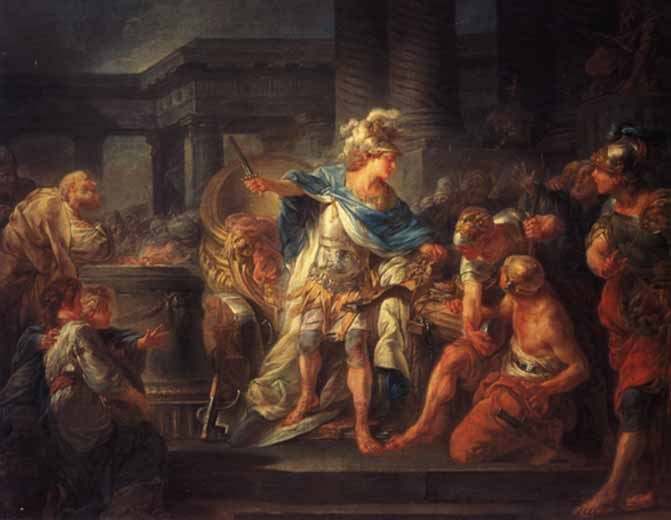I think what OP is feeling is a general disconnect from gamers as a whole.
Gaming has transitioned to main stream, and with that change has brought about the lowest common denominator. People who don't enjoy thinking, but just like things essentially done for them.
Skyrim and Mass Effect 2 are great examples of this. Both games were stripped of most RPG elements.
There are still studios dedicated to us Valve, CD Projekt Red, Paradox, From, and various indie studios.
Valve is all about making games based on behavioral conditioning, though. I'd hardly say they're dedicated to us. They make pretty much the opposite of what I'm interested in.
On the flip side of that, I'd argue that Skyrim isn't a great example of what you're talking about, but that's because Skyrim is ultimately a fork of gameplay evolution that stems from Ultima Underworld. If anything, it should be all
about removing RPG mechanics and just simulating what those mechanics are abstractions of, simulation mechanics (example: Skyrim has better AI than previous Bethesda games, as far as I can tell). The game's not dumbed down, it's just getting closer to the Looking Glass ideal, which is a different kind of game.
OP,I'm trying to understand what exactly you are looking for, can you go into more detail about what exactly you liked about Deus EX and System Shock 2.
I mean go into more details with specific examples, and is, "at this point of the game, when I figured out this method...or this part me feel like this...or when I discovered this...etc"
I'm understand what you are saying as a whole, but I'm a different type of gamer than you as I couldn't get into those games, because the gameplay mechanics or maybe the interface felt too cumbersome. I understand generally/intellectually why those games are considered masterpieces, but I could never connect with those games on an emotional level, because of the type of gamer I am at the moment. I am however, very curious what specifically made the games masterpieces to you, and I mean go into details and specifics.
My post is just out of general curiosity, and I don't have any judgments, as I understand we are very different types of gamers.
I'm the kind of guy who tries to see what he can get the AI to do. I like to try new ways of approaching situations. I like to see whether or not a thing will
work. For me, it's all about discovering new ways to approach a video game, and then expressing myself through my chosen interpretation of the game's design.
More games seem interested in focusing on multiplayer connectivity or a focus on overtly (Uncharted) or covertly (Valve games) making players experience an experience specifically designed to make them respond in some way.
I have a problem with these games because many times, I approach them differently.
Take, for instance, Battlefield 3. Campo and I were stealthing through it, and crouching, as I believe the game instructed. Then the game wanted me to stab a guy. Now, previously, I'd been shooting people with my silenced gun, but for whatever reason, the game forced me to sneak to the guy and stab him.
So I did, and I died.
I tried again, this time waiting for the prompt. I died again.
So I tried again, this time sneaking close as possible to the guy before stabbing.
Again, I died. It was instant.
I thought it was a bug.
Nope. Turns out I was still crouching, and I was supposed to stand.
Silly me, while the game has trained players at this point to crouch to avoid being noticed, it's important to stand now, despite the fact that you have to walk up behind a guy.
This is a particularly egregious example. Let's look at Deus Ex: Human Revolution. First off, I love DE:HR. I think it's a great game in a lot of respects. It has a few failings, some everyone talks about (boss fights), and others most people don't (stealth that borrows less from Thief and more from Metal Gear Solid).
But my problem is that Human Revolution has a RIGHT way to play. The developers seem to be all "well, yeah, Deus Ex is supposed to be versatile, so we'll put the options in, but it's REALLY a nonlethal stealth game."
So the game becomes structured. Human Revolution rewards more XP for nonlethal, non-detection players than others. It becames THE way to play, rather than A VERY CHALLENGING way to play. All the reward is sucked out of doing so.
Jamie Cheng from Klei (Mark of the Ninja) talks about the problems with this philosophy (people get less fun out of a game and play it more automatically) in a piece on Don't Starve on the
Penny Arcade report.
What I want is the game where I figure out how to sneak around the soldiers who told me I had to pay them to get through a blocade, without the game (through level design or anything else) hinting that I had another way past. What I want is a game where I learn that overstuffing myself with loot is actually a really, really stupid idea.
What I want are the games that cause me to learn, not just about themselves, but about myself--and I don't want to do it in multiplayer.
The lizard-brain massagers and multiplayer experiences don't help that... but they seem to be the kind of games everyone's interested in making these days.
I think Skyrim and Minecraft appeal hugely because they're games that don't quite do this. They're more free, more player-empowering. They allow for more individual diversity.
That's why they're awesome.
EVERYONE DO THIS. HARD RESET IS EXCELLENT.
It's one of the few games where my first person senses were OFF. I kept bumping into things.


